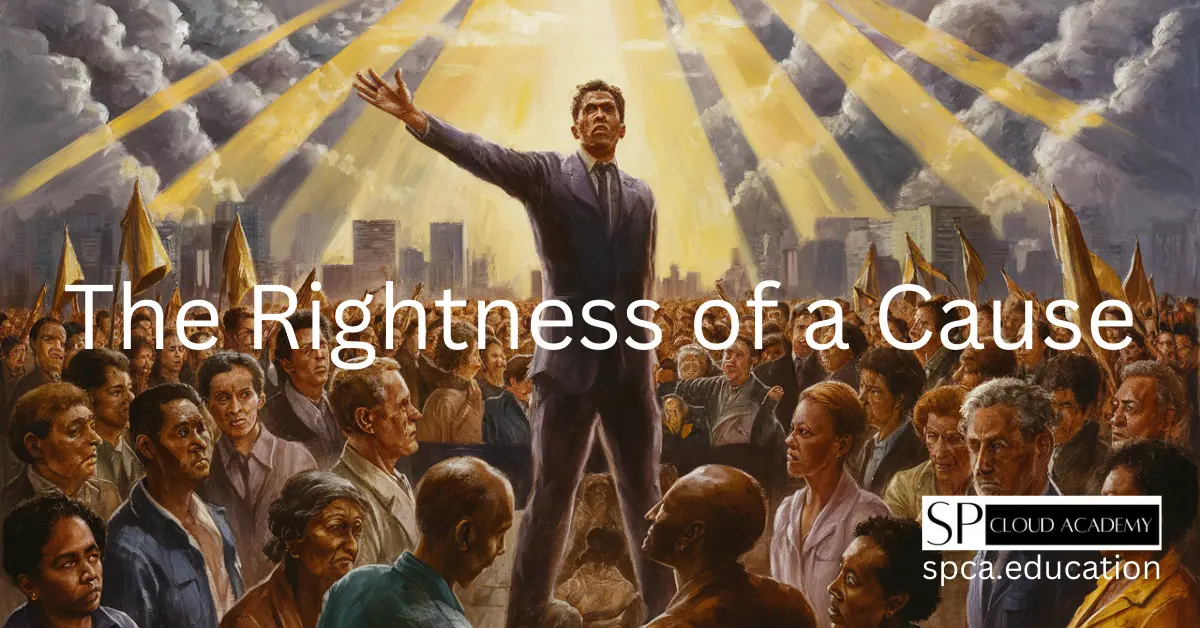Discover how paradigm shifts are reshaping our world and transforming the way we live, work, and connect in the 21st century.
Introduction: Understanding the Paradigm Revolution
In today’s rapidly evolving world, the concept of paradigm has transcended academic circles to become a driving force in how we approach life’s challenges. What once were simple trends have evolved into fundamental transformations that reshape entire industries, communities, and individual perspectives. This shift represents more than just change – it signifies a complete reimagining of established norms and practices.
The modern paradigm revolution touches every aspect of our daily existence, from how we communicate and work to how we understand success and fulfillment. Unlike fleeting trends that capture momentary attention, paradigm shifts create lasting impact by challenging core assumptions and introducing entirely new ways of thinking. This transformation has accelerated dramatically in recent years, fueled by technological advancement, global connectivity, and an increasing awareness of social and environmental responsibilities.
Understanding this evolution from trend to transformation is crucial for navigating our complex modern landscape. As we witness paradigms reshaping everything from business models to personal relationships, we must recognize their profound influence on shaping tomorrow’s world.
The Evolution of Paradigm Thinking in the Digital Age
The digital revolution has fundamentally altered how paradigms emerge and spread throughout society. Traditional paradigm shifts once took decades or centuries to fully manifest, but today’s interconnected world enables rapid transformation across multiple sectors simultaneously. Social media platforms, instant communication, and global information sharing have compressed the timeline for paradigmatic change from years to months.
This acceleration has created what experts call “paradigm velocity” – the speed at which new frameworks replace old ones. Digital natives, having grown up with constant technological evolution, naturally embrace paradigmatic thinking as a survival mechanism in an ever-changing environment. They view adaptability not as an option but as an essential life skill.
The democratization of information through digital channels has also empowered individuals to challenge established paradigms. Where once paradigm shifts were initiated by institutions or thought leaders, today’s transformations can emerge from grassroots movements, online communities, or viral social phenomena. This shift in power dynamics has made paradigmatic change more inclusive and representative of diverse perspectives.
Furthermore, artificial intelligence and machine learning are introducing paradigms that challenge human-centered approaches to problem-solving, forcing us to reconsider fundamental assumptions about intelligence, creativity, and decision-making processes.
Technology as a Paradigm Catalyst
Technology serves as the primary catalyst for paradigm transformation in modern society. The emergence of smartphones didn’t just create a new communication device; it fundamentally changed how we access information, maintain relationships, and organize our daily lives. This exemplifies how technological innovations trigger paradigmatic shifts that extend far beyond their original purpose.
Cloud computing represents another paradigmatic transformation, shifting from ownership-based to access-based models. This change has revolutionized business operations, enabling remote work cultures and subscription-based services that prioritize flexibility over possession. The paradigm of “access over ownership” now influences everything from transportation (ride-sharing) to entertainment (streaming services).
Artificial intelligence introduces perhaps the most significant paradigmatic challenge of our time. As AI systems demonstrate capabilities once considered uniquely human, we’re forced to reconsider paradigms about consciousness, creativity, and the nature of intelligence itself. This technological paradigm shift raises fundamental questions about human identity and purpose in an increasingly automated world.
The Internet of Things (IoT) creates interconnected ecosystems that challenge traditional paradigms of privacy, security, and individual autonomy. Smart cities, connected homes, and wearable devices generate paradigmatic shifts in how we understand the relationship between technology and human agency.
Workplace Transformation: The New Professional Paradigm
The modern workplace has undergone a complete paradigmatic transformation, accelerated by global events and technological capabilities. Remote work, once considered an exception, has become a mainstream paradigm that challenges traditional notions of productivity, collaboration, and professional identity. This shift represents more than location flexibility; it fundamentally changes how we define work-life balance and measure professional success.
The gig economy exemplifies another paradigmatic shift from job security to opportunity flexibility. Modern professionals increasingly view career development through the lens of skill acquisition rather than hierarchical advancement. This paradigm emphasizes personal branding, continuous learning, and adaptability over traditional corporate loyalty and linear career progression.
Collaborative leadership has replaced command-and-control management paradigms, emphasizing emotional intelligence, inclusivity, and shared decision-making. This transformation reflects broader social paradigms that value diversity, equity, and psychological safety in professional environments.
The rise of purpose-driven work represents a paradigmatic shift from purely profit-focused careers to mission-aligned professional choices. Younger generations particularly embrace paradigms that integrate personal values with professional activities, seeking employers whose values align with their own social and environmental concerns.
Social and Cultural Paradigm Shifts
Contemporary society is experiencing profound paradigmatic changes in social structures and cultural norms. The traditional nuclear family paradigm has evolved to embrace diverse family structures, including single-parent households, blended families, and chosen families. This shift reflects changing paradigms about relationships, commitment, and community support systems.
Gender paradigms are undergoing significant transformation as society recognizes and embraces non-binary identities and gender fluidity. This evolution challenges binary thinking and creates more inclusive paradigms that accommodate diverse expressions of identity and sexuality. The impact extends beyond individual recognition to institutional policies, language usage, and social expectations.
Consumer behavior paradigms have shifted from materialism to experientialism, with people increasingly valuing experiences over possessions. This change reflects deeper paradigmatic shifts about happiness, status, and personal fulfillment. Minimalism and sustainable living represent paradigmatic responses to overconsumption and environmental concerns.
Social media has created new paradigms for community building, self-expression, and information sharing. While enabling global connectivity and democratizing voice, these platforms also challenge traditional paradigms of privacy, authenticity, and interpersonal communication. The result is a complex social landscape where virtual and physical relationships intersect in unprecedented ways.
Environmental Consciousness: The Sustainability Paradigm
Environmental awareness has evolved from niche concern to mainstream paradigm, fundamentally changing how individuals, businesses, and governments approach decision-making. Climate change has catalyzed a paradigmatic shift from short-term thinking to long-term sustainability considerations across all sectors of society.
The circular economy represents a paradigmatic departure from linear “take-make-waste” models toward regenerative systems that minimize waste and maximize resource efficiency. This paradigm influences product design, manufacturing processes, and consumer behavior, creating closed-loop systems that benefit both economic and environmental outcomes.
Corporate sustainability has transformed from optional corporate social responsibility to essential business strategy. Companies now integrate environmental, social, and governance (ESG) criteria into core operations, reflecting paradigmatic shifts in stakeholder expectations and investment priorities. This transformation demonstrates how environmental paradigms influence financial markets and business valuation.
Individual lifestyle choices increasingly reflect environmental paradigms, with people adopting plant-based diets, renewable energy, and conscious consumption patterns. These personal paradigm shifts create collective impact that influences market demand and policy development, demonstrating how individual transformation can drive systemic change.
The Psychology of Paradigm Adoption
Understanding how individuals and organizations adopt new paradigms reveals important insights about transformation processes. Paradigm adoption typically follows predictable patterns, beginning with early adopters who embrace new frameworks despite uncertainty or resistance from established systems.
Cognitive flexibility plays a crucial role in paradigm adoption, as individuals must be willing to abandon familiar mental models in favor of unfamiliar approaches. This psychological process often involves discomfort and resistance, as paradigm shifts challenge deeply held beliefs and established behaviors.
Social influence significantly impacts paradigm adoption rates. When respected leaders, peer groups, or cultural icons embrace new paradigms, adoption accelerates through social proof mechanisms. This explains why paradigm shifts often appear sudden despite developing gradually over time.
Generational differences affect paradigm receptivity, with younger individuals typically more open to paradigmatic change while older generations may experience greater resistance. However, compelling evidence and clear benefits can overcome age-related resistance, particularly when paradigm shifts address pressing problems or improve quality of life.
Challenges and Resistance to Paradigmatic Change
Paradigm transformation faces significant obstacles that slow or complicate adoption processes. Institutional inertia represents a major challenge, as established systems, regulations, and bureaucracies resist paradigmatic changes that threaten existing power structures or require substantial reorganization.
Economic interests often create resistance to paradigm shifts, particularly when new paradigms threaten profitable business models or require expensive transitions. Industries built on traditional paradigms may lobby against changes or spread misinformation to preserve market positions.
Cultural resistance emerges when paradigm shifts challenge deeply held values or traditional practices. Religious, political, or cultural groups may view paradigmatic changes as threats to identity or core beliefs, creating social tension and slowing transformation processes.
Fear of uncertainty represents a psychological barrier to paradigm adoption. Individuals comfortable with existing paradigms may resist change due to loss aversion or anxiety about unknown consequences. Overcoming this resistance requires clear communication about benefits and support during transition periods.
Future Implications: Paradigms Shaping Tomorrow
The paradigm transformations occurring today will continue shaping future society in profound ways. Artificial intelligence and automation will likely create paradigmatic shifts in education, healthcare, and governance that we can barely imagine today. These changes will require adaptive thinking and flexible institutions capable of embracing continuous transformation.
Climate change will drive paradigmatic shifts toward regenerative systems, sustainable technologies, and circular economic models. Future generations will likely view current environmental practices as antiquated, much as we now view past industrial practices that ignored environmental consequences.
Global connectivity will create paradigms that transcend national boundaries, potentially leading to new forms of governance, economic cooperation, and cultural exchange. These developments may challenge traditional paradigms of sovereignty and national identity while creating opportunities for global collaboration.
Biotechnology and genetic engineering will introduce paradigmatic questions about human enhancement, longevity, and the nature of biological existence. These developments will require new ethical frameworks and social paradigms to navigate unprecedented choices about human evolution.
Conclusion: Embracing the Paradigm Revolution
The transformation from trend to paradigm represents one of the most significant characteristics of modern life. As we navigate this landscape of continuous change, success depends on developing paradigmatic thinking skills that enable adaptation and innovation. Rather than resisting paradigm shifts, individuals and organizations must learn to anticipate, evaluate, and embrace transformative changes.
The paradigm revolution offers unprecedented opportunities for positive change, from addressing climate challenges to creating more equitable societies. However, realizing these benefits requires active participation in paradigmatic transformation rather than passive acceptance of change.
As we move forward, the ability to think paradigmatically will become increasingly valuable. This means questioning assumptions, exploring alternatives, and remaining open to fundamental shifts in how we understand and interact with the world. The future belongs to those who can navigate paradigmatic change while maintaining core values and human connections.
The rise of paradigm in modern life represents both challenge and opportunity. By understanding and embracing this transformation, we can actively participate in shaping a future that reflects our highest aspirations and addresses our most pressing needs. The paradigm revolution is not something happening to us – it’s something we’re creating together.



I think this can be summed up as a world that is caught between two paradigms. We are moving away from a society with deities and moving towards one without. Hopefully, something will arise that will act as a moral compass to guide people into a world view of compassion and empathy, but I’m observing a world where social networks provide a prevalent platform for knee jerk judgements without contemplation, which unfortunately are based in condemnation.